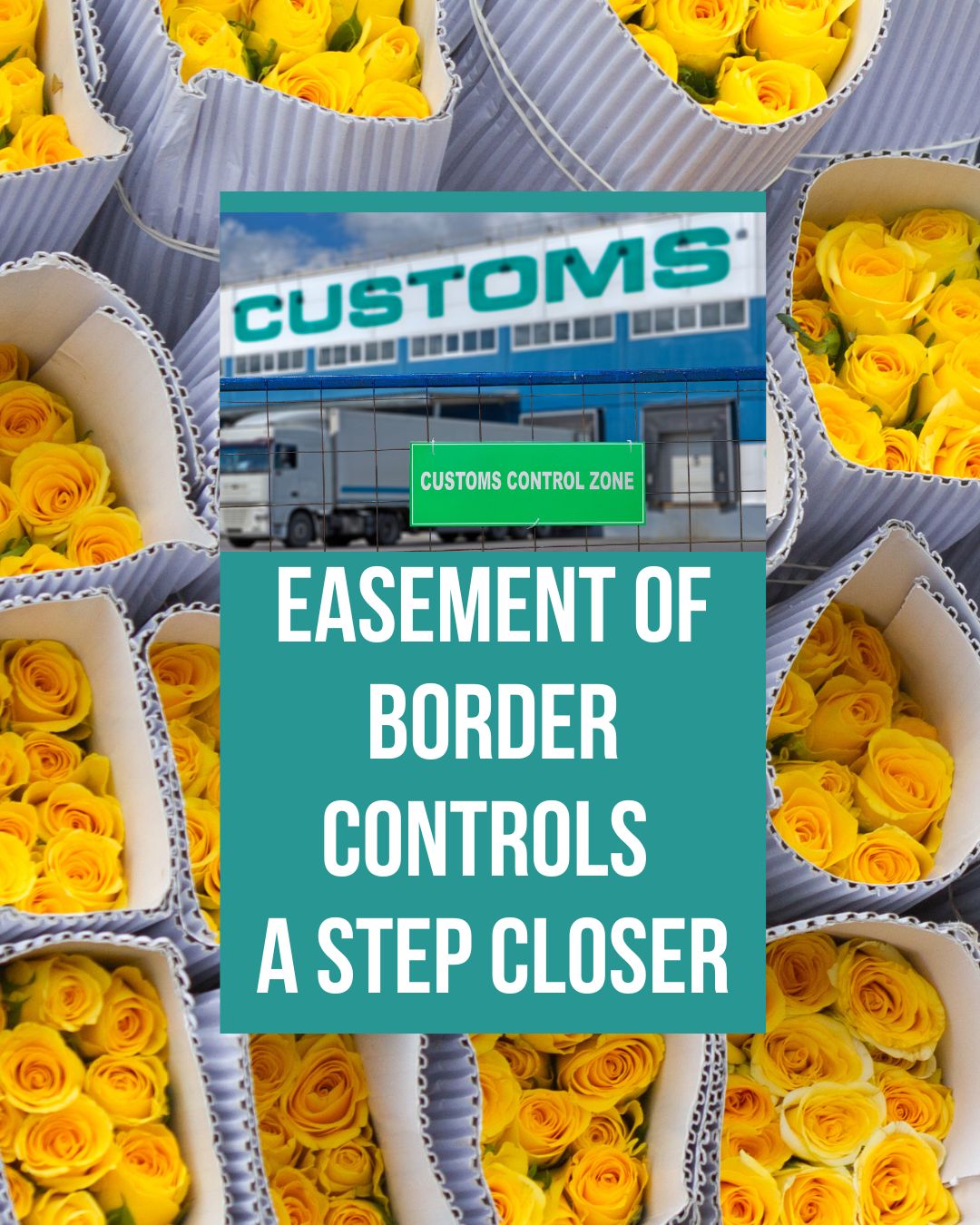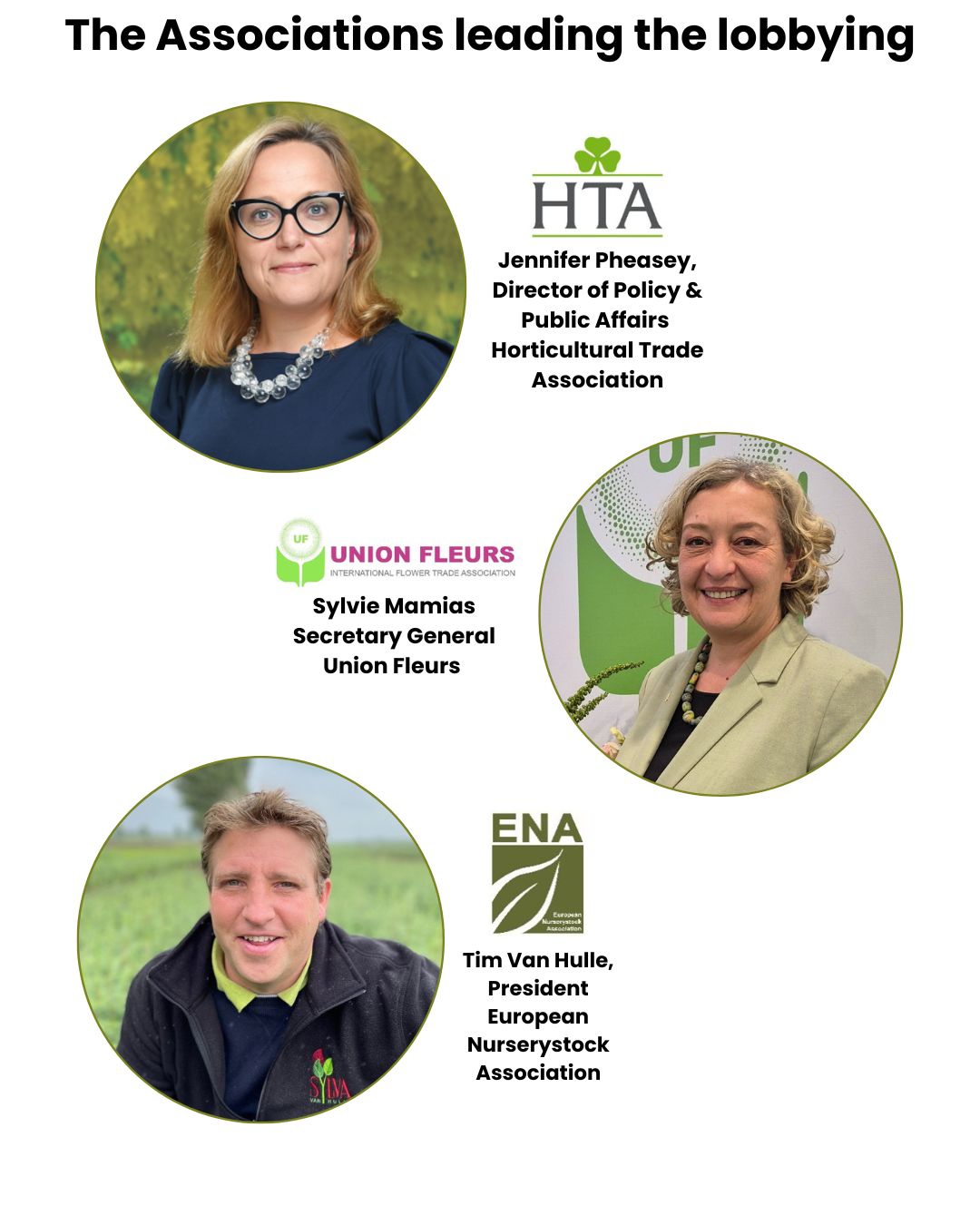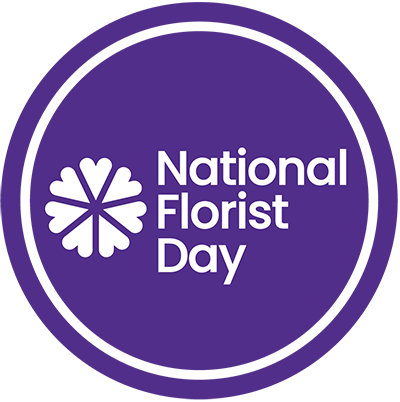
End to border controls starts with EU mandate
In a move that could seriously improve cross border supply of flowers and plants, the EU Commission has announced negotiations will start on a revised EU-UK SPS agreement.
The Horticultural Trades Association (HTA), Union Fleurs and the European Nurserystock Association (ENA) have welcomed the confirmatio announcement given by the EU Council to the European Commission to open negotiations with the UK on an EU-UK SPS arrangement as set out in the Common Understanding of 19 May 2025 and which allows the negotiations to now formally kick off between the EU and the UK.
However, the associations urge both the EU and the UK to engage, deliver, and implement an SPS Agreement as swiftly as possible, which will bring structural and vital relief from the trade frictions, restrictions, and costs that the supply chains of plants, plant products, cut flowers, bulbs, and seeds are currently experiencing. Such an agreement will be critical in securing business predictability for both trading partners, removing barriers and paving the way to unlock green growth and investment in both the UK and the EU.
The associations use this moment to reiterate their joint call for action to EU and UK policymakers:
- Swiftly deliver and implement a robust EU-UK SPS Agreement fully covering horticulture and floriculture products that will secure frictionless trade whilst maintaining biosecurity standards, unlock longer-term opportunities and benefit both businesses and consumers.
- Involve sector associations to ensure that this Agreement will be grounded in technical details and operational feasibility and offer workable and effective solutions that genuinely resolve the challenges and frictions our supply chains have been navigating over the last years.
- Introduce urgent pragmatic measures on the UK side until the SPS Agreement comes into force to offer immediate vital relief to businesses and stabilise supply chains (Return inspections of high-risk plants to the Place of Destination, stop inspections on medium-risk cut flowers).
The horticulture and floriculture supply chains are efficient, highly integrated and time-sensitive due to the perishability and sensitivity of products that are traded. Smooth logistics and speedy processes are critical for all businesses involved. While highly sensitive to disruptions and delays, those supply chains are also quick to adapt and will make the most of any relief that the reset of EU-UK trade relations will allow to materialise.
Jennifer Pheasey, Director of Policy and Public Affairs at the HTA, said: “We have awaited this mandate to take us another step towards critical negotiations that have the potential to lift the unnecessary burdens and border pain horticultural businesses are experiencing. We wholly support and ask for the UK-EU SPS agreement to be concluded and implemented as soon as possible. In the meantime, we seek action and pragmatism at the border to restore confidence and alleviate the significant costs facing many of our members. By working in partnership, collaboratively and constructively, we believe we can unlock green growth for all those involved in horticultural supply chains, and deliver for UK gardeners, green spaces and support healthier communities.”
Sylvie Mamias, Secretary General of Union Fleurs – International Flower Trade Association, said: “Together with the HTA, European associations of the sector and national member organisations, Union Fleurs will continue to advocate towards EU and UK policymakers to ensure that floriculture and horticulture businesses on both sides can benefit as early as possible from a concrete, comprehensive and operational EU-UK SPS Agreement. This Agreement will offer lasting relief from the current cross-border challenges and trade frictions that have impeded the movement of highly perishable and sensitive flowers and plants between the EU and the UK since 2021. Most of all, businesses on both sides urgently need predictability and certainty to be able to continue delivering high-quality flowers and plants to consumers. "
Commenting on the decision Tim Van Hulle, President of ENA, said: “Working closely together with the UK creates extra dynamics for our industry and all nurseries involved. Nursery managers are dedicated producers of environmental products. Due to climate change, our production companies are facing a lot of challenges to continue to achieve the high-quality standards our sector seeks. Increasing trade-related bureaucracy is not helping producers dedicate their time and passion to produce good-quality plants. This development towards the next phase is therefore highly appreciated to enable a smoother transition of plants between the EU and the UK.”

Who they are
Horticultural Trades Association (HTA)
The HTA is the leading trade association representing and supporting businesses in the UK garden industry. With a membership comprising retailers, growers, manufacturers, wholesalers, landscapers and garden designers, the HTA actively advocates for the sector, fostering growth, sustainability, and innovation. The HTA is also a member of the AIPH, European Nurserystock Association (ENA), European Forestry Nursery Association (EFNA), Union Fleurs and Growing Media Europe (GME).
Union Fleurs – International Flower Trade Association:
Union Fleurs is the international umbrella organisation for national associations and companies active in the floricultural trade. The general mission of Union Fleurs is to represent, promote and defend the worldwide interests of the traders and wholesalers in cut flowers, cut foliage and pot plants. Union Fleurs was founded in 1959 in Brussels and has nowadays members in 20 countries worldwide. Within its membership, Union Fleurs gathers over 3.000 companies worldwide, of which more than 1,500 floricultural traders and wholesalers in the EU. Members account for more than 80% of the total value of the worldwide trade of cut flowers and pot plants.
ENA - European Nurserystock Association:
ENA represents nursery stock growers’ organisations all over Europe. The nurseries, where live plants are propagated, grown and traded, are members of regional or national nursery organisations that are members of the ENA. Sixteen EU countries currently constitute the membership of ENA.






